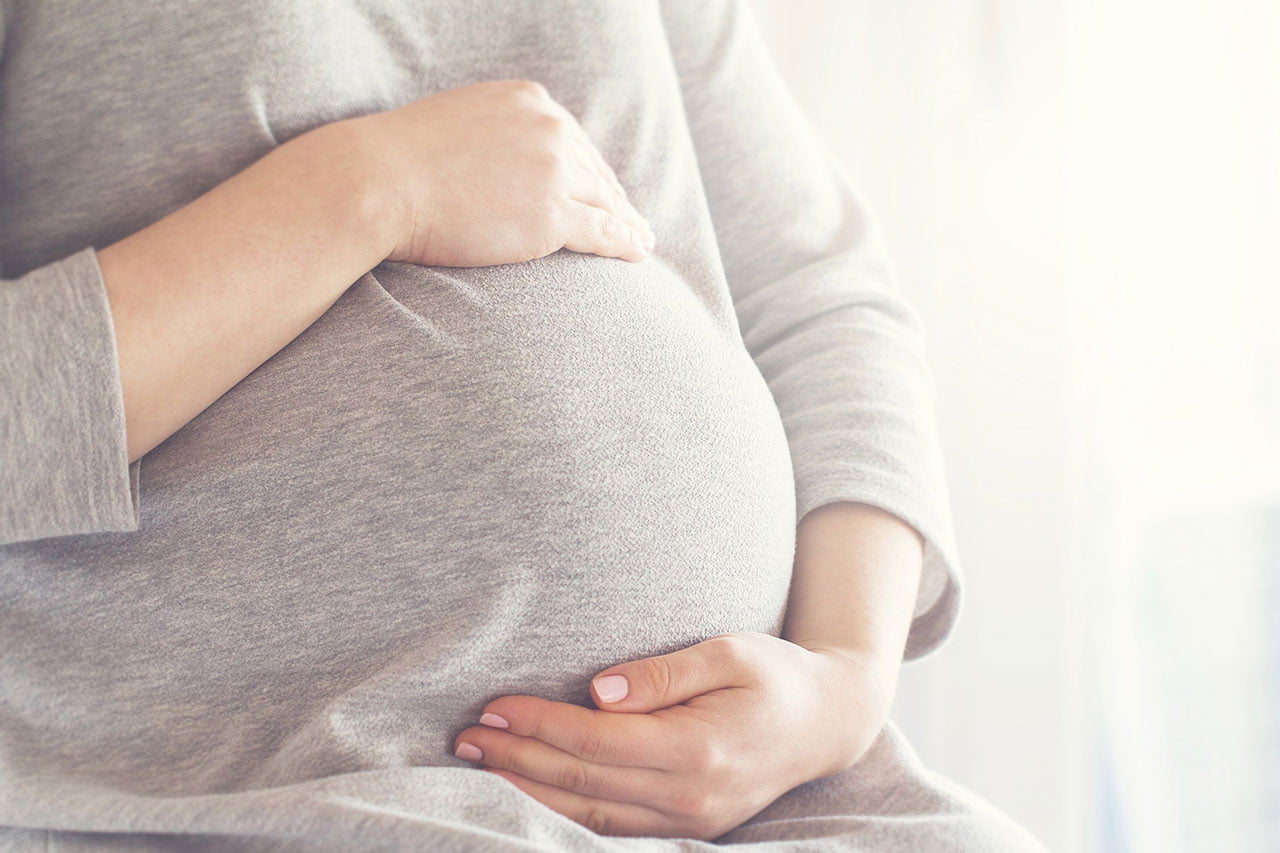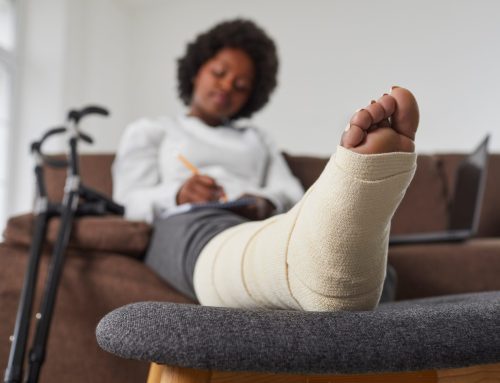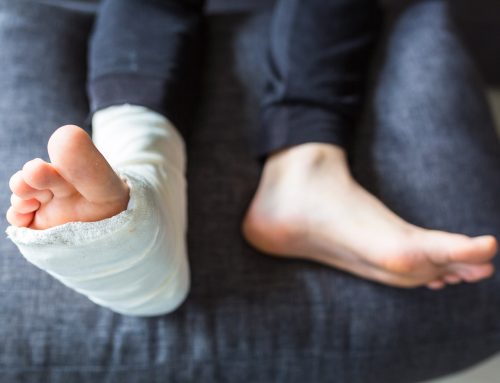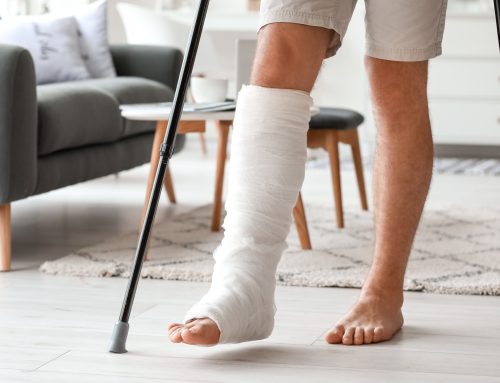Pregnancy and breastfeeding can have a variety of health effects on the body, including a loss of three to five percent of bone mass due to the calcium needs of a growing baby. This doesn’t need to be alarming though as much of this bone is recovered after breastfeeding ends. But, while rare, pregnancy and lactation-associated osteoporosis can be severe and steps should be taken to protect your bone health.

Calcium needs during pregnancy and lactation
When a fetus is growing inside a womb, it requires large amounts of calcium, which is essential for skeletal development. Calcium is transferred through the placenta and this is especially necessary during the last three months of pregnancy. After birth, calcium is also delivered to a baby via breast milk. If not enough calcium is consumed by the mother, it can start to be leached from the bones, which can make them more brittle and fragile. In ideal conditions, bone resorption returns to normal after breastfeeding is stopped.
Women are more at risk of developing osteoporosis, as bone mass declines after menopause. This is due to the drop in estrogen hormones; estrogen accelerates bone turnover. Women generally also have lower bone mineral density and start losing density earlier in life than men do. Osteoporosis damages the architecture of bones, leading to an increased risk of developing fractures.
Most women and people who give birth don’t experience bone problems during pregnancy and breastfeeding, but there is a chance. Studies have found that there can be up to four to six percent loss of bone during the first six months of breastfeeding. Babies need a lot of calcium. During lactation, 300 to 4000 mg of calcium is transferred into breast milk every day. Though pregnant people have been found to absorb calcium from food and supplements better than those who are not pregnant.
Immense benefits for breastfeeding seen
There are multiple benefits of breastfeeding to a woman’s and baby’s health. Secretions of parathyroid hormone-related protein (PTHrP) counterbalances bone loss and protects the mother’s bones and skeleton. Breastfeeding generally increases estrogen levels as well, which may help keep the balance between bone resorption and formation.
Short-term benefits of breastfeeding can include a decrease in the prevalence of postpartum depression, while in the long-term it may help prevent breast and ovarian cancer. It also allows for connection between parent and baby. Breast milk contains the nutrients babies need for the first six months and can protect your child against infections and disease. So it’s recommended that those people that can breastfeed should.
Developing osteoporosis from pregnancy and breastfeeding
Pregnancy and lactation-associated osteoporosis is rare but can be severe. Generally, it shows up first as bad back pain, the result of multiple vertebral fractures.
“We really don’t know how many women have [pregnancy and lactation-associated osteoporosis] (PLO),” said Columbia University endocrinologist Adi Cohen, MD. “Osteoporosis affects an estimated 10 million adults over age 50 in the U.S., but it’s estimated that PLO affects fewer than 200,000 women a year. It’s so uncommon that many obstetricians never encounter a patient with PLO.”
While rare, osteoporosis associated with pregnancy and breastfeeding is likely underdiagnosed. This bone demineralization may become complicated with fractures. Many of the health issues, such as pelvic pain, can be viewed as a normal part of pregnancy so osteoporosis may be ruled out.
Certain populations are at a greater risk for effects on bone health. Pregnant teenagers are at a higher risk for bone loss as they are still building much of their own total bone mass.
Bone loss may also be prolonged depending on how long the breastfeeding period lasts. Research from South Korea has found that prolonged breastfeeding, defined as more than 37 months, is associated with low bone mineral density in the lumbar spine and a higher prevalence of osteoporosis. The number of deliveries and the age at the time of childbirth did not influence bone mineral density.
A study in Mexico published in The Journal of the North American Menopause Society showed similar results: breastfeeding for 24 to 36 months was significantly associated with osteoporosis. Long periods of breastfeeding is also associated with vertebral fractures.
Ensuring a healthy pregnancy with less risk of osteoporosis and fractures
People who are pregnant or lactating must ensure they have an adequate intake of calcium and vitamin D. Speak with your primary care physician or OB-GYN about what dietary supplements you should be taking.
Eating calcium-rich foods is especially important during pregnancy and breastfeeding. Excellent sources of calcium include dairy products, tofu, leafy green vegetables, canned sardines and salmon, and fortified foods and drinks.
Vitamin D is essential for calcium to be absorbed into the body. Canadians do not receive enough vitamin D from the sun, due to its position in the sky for much of the year. Pregnant and lactating people may require a vitamin D supplement, though it can also be obtained from foods such as fatty fish, like tuna, mackerel, and salmon, eggs, cheese, and fortified milks and cereals.
Medical experts recommend regular physical activity as part of a healthy pregnancy. Exercise helps promote better sleep, increase energy levels, improve mood, and increase muscle tone, strength, and endurance, all of which are important during pregnancy. Regular physical activity can also help build stamina for labour and delivery and speed up recovery after childbirth. Choose activities that you feel comfortable doing and that your healthcare provider approves of.
Drinking plenty of water is important to carry nutrients to your body and into the growing baby. Water is especially necessary when doing exercises or when out in warm temperatures to maintain hydration levels and steer off dehydration and exhaustion.
Pregnancy and your bone health
Do you have any questions about how pregnancy and breastfeeding can impact bone health? How do you ensure you and your baby stay healthy during these important times?





